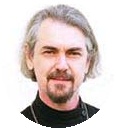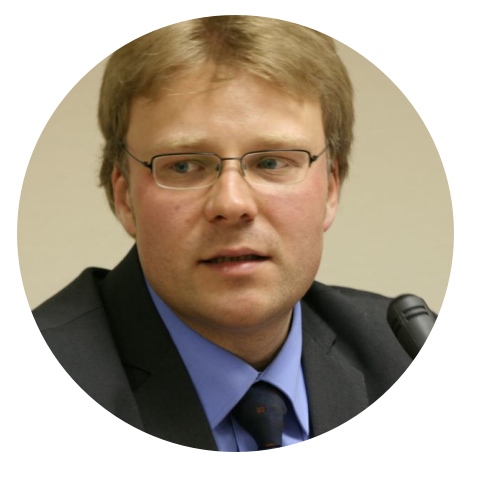A comparative content-analysis of the sermons of Patriarchs Alexy II and Cyril
12/27/2011Currently under preparation: Release No.31 Parish Life
The sociological agency Sreda (The Environment) has set itself the task of identification of the frequency of utterances of certain lexemes in Patriarchal sermons. In the course of research (see Research Methodology Description below), were analyzed sermons by Patriarchs of Moscow and All Russia, Alexis II and Cyril, delivered in 2005 to 2008, and 2009 to 2011, respectively, with the total amount of more than 1.5 million characters.
The results showed that most frequently, Patriarchs Cyril and Alexis uttered the name of the Lord Our God. Patriarch Cyril would on average pronounce the word God 150 times per 10,000 words, not counting the word Lord. Patriarch Alexis used to pronounce the word God a bit less often; he preferred to use the word Lord instead (approx. 120 mentions per 10,000 words).
As regards the noun human, Patriarch Cyril uttered it nearly five times more often than Patriarch Alexis had done. It is also worth mentioning that human in any of its word-forms is just one of many examples of a big difference in utterances of the two Patriarchs.
For instance, in his sermons Patriarch Cyril uttered the word Russia five times less often than Patriarch Alexis. The same applies to the words Fatherland and feat – in his 2009 – 2011 sermons, Patriarch Cyril uttered them 4 – 5 times less often than Patriarch Alexis had done in 2005 – 2008.
In Patriarch Alexis’s sermons, the word prayer sounded three times more often; the words Christ, Savior, penitence and joy – 2 – 3 times more often. At the same time, he had pronounced the words force and sin 2 – 3 times less often than Patriarch Cyril did.
On the other hand, Patriarch Cyril used the word understanding by a factor of ten more often than Patriarch Alexis used to do. In his sermons, Patriarch Cyril referred to the words law and verity nearly 10 times, truth – 7 times, and power – 5 times more frequently than his predecessor.
Of the words duty, history, family and death, Patriarch Alexis used to speak approximately as many times as his successor; both did it not too often, however.
The word values uttered by Patriarch Cyril approx. 10 times per 10,000 words had practically not been used by Patriarch Alexis.
It is the words man and woman that appeared the outsiders of the list of the Patriarchs’ ‘favorite words’: their occurrence varies from 0 to 1 – 2 per 10,000 words.
RESEARCH METHODOLOGY DESCRIPTION
We analyzed the texts of Patriarch of Moscow and All Russia’s sermons released regularly at http://www.patriarchia.ru/ since 2005.
The texts of the sermons were downloaded in mid-October 2011; no sermons released thereupon were taken into account.
The total ‘weight’ of Patriarch Alexis II’s sermons of 2005 – 2008 considered in the study was 112,605 characters (spaces included), or 15,922 words rounded up to 16,000 words for convenience.
The total ‘weight’ of Patriarch Cyril’s sermons of 2009 – 2011 considered in the study was 1,483,626 characters (spaces included), or 220,597 words rounded down to 220,000 for convenience.
The number of utterances was counted automatically by the WordStat statistically-based textual analysis tool.
When counting the utterance frequency of a word, all its forms and derivatives were taken into consideration. The exception was the words used in one form only. Thereby, in most cases the final total of utterances of a word represented the total of utterances of a corresponding group of words. For instance, in case of counting the occurrences of the noun human, the final result included the total of utterances of this word in all grammatical cases plus of its derivatives – adjectives, etc.
In the chart below, the number of utterances is presented per 10,000 words. With this purpose, the final total of a group of words was multiplied by the coefficient (K) different for each Patriarch and calculated by the formula ’10,000 divided by the total amount of words in all sermons.’ For Patriarch Alexis II, this coefficient equaled to: K = 10000/16000 = 0.625; for Patriarch Cyril, it equaled to: К.=10000/220000 = 0.0454.
© by Sergei Bolotov, PhD,
specially for the Sreda (The Environment) Agency







